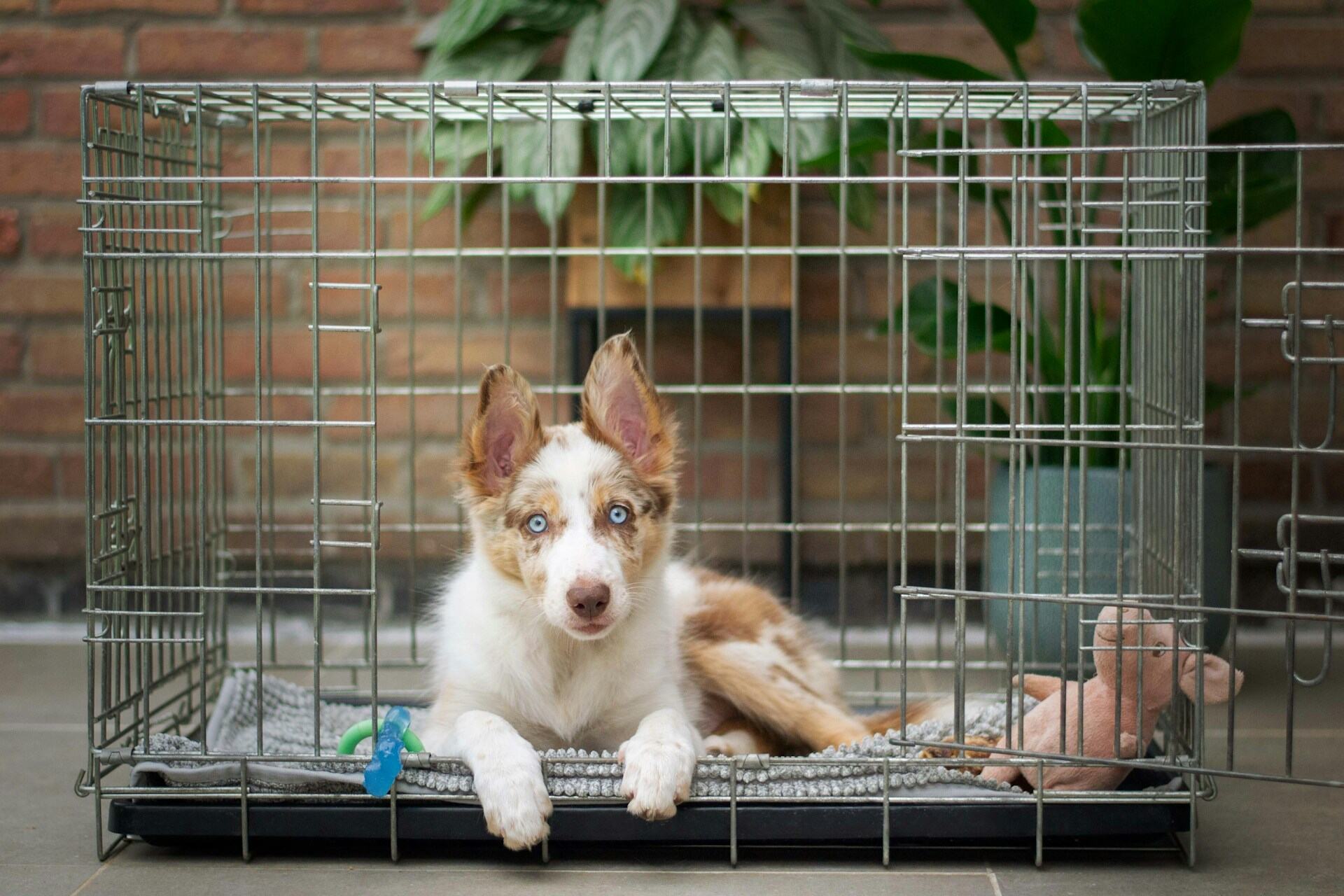Having a dog as a beloved companion can bring immense joy and happiness to our lives. However, it can also be quite perplexing when our furry friends refuse to sleep at night, leaving us puzzled and sleep-deprived. If you find yourself wondering Why Does My Dog Not Sleep at Night, this article aims to shed light on some common reasons behind this behavior.
Dogs, like humans, have their own unique sleep patterns and preferences. While some dogs are natural night owls, others may struggle to adjust to a nocturnal routine. Understanding the underlying causes of their sleeplessness can help us address the issue and ensure a peaceful night’s rest for both our furry friends and ourselves.
One possible reason for your dog’s nighttime wakefulness could be an excess of energy. Dogs that do not receive sufficient physical exercise and mental stimulation throughout the day may become restless and struggle to settle down at night. Regular exercise and engaging activities can help tire out your dog, making it easier for them to relax and sleep when bedtime arrives.
 Understanding the Reasons Behind Why Does My Dog Not Sleep at Night
Understanding the Reasons Behind Why Does My Dog Not Sleep at Night
Here are some of the reasons of Why Does My Dog Not Sleep at Night:
1. Anxiety and Stress
Anxiety and stress can significantly impact your dog’s sleep patterns. Dogs, just like humans, can experience anxiety for various reasons, such as separation anxiety, fear of loud noises, or changes in their environment. These anxious feelings can keep them alert and on edge, making it difficult for them to relax and fall asleep. If you suspect anxiety to be the cause, it is essential to provide your dog with a calm and secure environment, as well as consider behavioral training or consulting with a professional.
2. Lack of Routine
Dogs thrive on routine and structure. If your dog’s sleep schedule is inconsistent or disrupted, it can lead to restlessness at night. Dogs are creatures of habit and feel more secure when they have a predictable routine. Establishing a regular bedtime routine, including feeding, exercise, and winding down activities, can help signal to your dog that it’s time to sleep and promote a more peaceful night.
3. Medical Conditions
Certain medical conditions can interfere with your dog’s sleep patterns. Pain, discomfort, or underlying health issues can cause restlessness and make it challenging for your dog to find a comfortable position to sleep. If you notice any signs of discomfort or suspect a medical condition, it is crucial to consult with your veterinarian. They can conduct a thorough examination and provide appropriate treatment to alleviate any underlying health concerns.
4. Age and Breed Factors
Age and breed can also play a role in your dog’s sleep habits. Puppies and younger dogs tend to have higher energy levels and may require more frequent bathroom breaks during the night. Additionally, certain breeds are naturally more active or prone to anxiety, which can affect their sleep patterns. Understanding your dog’s specific needs based on their age and breed can help you establish realistic expectations and provide appropriate care.
5. Environmental Factors
The environment in which your dog sleeps can greatly impact their ability to rest at night. Factors such as noise, temperature, and comfort level can all contribute to their restlessness. Ensure that your dog’s sleeping area is quiet, free from distractions, and at a comfortable temperature. Providing a cozy and supportive bed can also help promote better sleep.
Practical Recommendations for Helping Your Dog Sleep Better at Night
1. Establish a Consistent Bedtime Routine
Creating a consistent bedtime routine can help signal to your dog that it’s time to wind down and prepare for sleep. Include activities such as a leisurely walk, interactive playtime, and a calming grooming session before settling down for the night. Consistency is key, so try to stick to the same routine every evening.
2. Provide Sufficient Physical Exercise
Ensuring that your dog receives enough physical exercise during the day can help tire them out and promote better sleep at night. Engage in activities such as brisk walks, runs, or play sessions that get their heart rate up and provide mental stimulation. The amount of exercise required may vary depending on your dog’s breed, age, and overall health, so consult with your veterinarian for guidance.
3. Create a Calm Sleeping Environment
Make your dog’s sleeping area a peaceful and comfortable space. Choose a quiet location away from noise and distractions. Consider using white noise machines or calming music to drown out external sounds that may disrupt their sleep. Ensure the room temperature is suitable for your dog’s comfort and provide a cozy, supportive bed that meets their needs.
4. Address Anxiety and Stress
If your dog experiences anxiety or stress that interferes with their sleep, it’s important to address these issues. Consult with a professional dog trainer or behaviorist who can provide guidance on reducing anxiety through desensitization techniques, positive reinforcement training, or the use of calming aids like pheromone diffusers or anxiety wraps.
5. Consult with a Veterinarian
If your dog’s sleeplessness persists or you suspect an underlying medical condition, it is crucial to consult with a veterinarian. They can conduct a thorough examination, perform necessary tests, and provide appropriate treatment options if needed. Your veterinarian can also offer advice on managing any pain or discomfort that may be affecting your dog’s sleep.
6. Avoid Feeding Late at Night
Feeding your dog a large meal right before bedtime can lead to discomfort and potential digestive issues that may disrupt their sleep. Try to feed your dog their last meal a few hours before bedtime to allow for proper digestion. Providing a small, healthy snack or puzzle toy can help satisfy their hunger without causing discomfort.
7. Consider Safe and Natural Sleep Aids
In some cases, natural sleep aids may help promote better sleep for your dog. Consult with your veterinarian about safe options such as herbal supplements or calming treats that can help relax your dog before bedtime. It’s important to use these aids under professional guidance to ensure their safety and effectiveness.
Remember, every dog is unique, and finding the right strategies to help them sleep better may require some trial and error. Patience, consistency, and a proactive approach will go a long way in improving your dog’s sleep patterns and overall well-being.
 Conclusion – Why Does My Dog Not Sleep at Night
Conclusion – Why Does My Dog Not Sleep at Night
There can be several reasons of Why Does My Dog Not Sleep at Night. Anxiety, lack of routine, medical conditions, age and breed factors, and environmental factors can all contribute to their restlessness. It is important to identify the underlying cause and address it accordingly. By providing a calm and secure environment, establishing a consistent routine, addressing any health concerns, and considering behavioral training if necessary, you can help your dog achieve a restful night’s sleep. Remember, a well-rested dog is a happy and healthy companion.















 Understanding the Reasons Behind Why Does My Dog Not Sleep at Night
Understanding the Reasons Behind Why Does My Dog Not Sleep at Night







 Conclusion – Why Does My Dog Not Sleep at Night
Conclusion – Why Does My Dog Not Sleep at Night